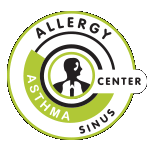The Post-Antibiotic Era: Adult Upper Respiratory Infections
Appropriate Antibiotic Use: Part I
It’s no secret that antibiotics are becoming less and less effective. The Centers for Disease Control launched a campaign to educate both doctors and the general public about antibiotic use and to cajole them into actually doing the right thing. I think this is a hugely important issue, so I’m going to devote a few posts to it. I’ll start with the one I see most: upper respiratory infections, or URIs.
In the general population, virtually all sporadic infections of the upper respiratory tract are self-limited viral infections, usually the common cold. Since antibiotics don’t treat viruses, you’d think doctors wouldn’t prescribe them for such problems, but they do. Alot. In fact, doctors prescribed $1.1 billion worth of antibiotics for URIs last year, and nearly all of those were unnecessary. Aside from the waste of money, the biggest problem for overprescribing antibiotics is resistance. The more we use antibiotics, the more bacteria become resistant to them. So, if we want them to work when we need them, we need to use them only when needed.
Even though nothing will get rid of or shorten the duration of a cold, medications and other strategies can give symptomatic relief.
- More than 200 different viruses can cause the common cold.
- Cold symptoms include runny nose, sneezing, sore throat and cough.
- Cold symptoms typically last ten days to two weeks.
- When nasal discharge turns yellow or green, it does not mean there is a bacterial infection. It simply means the immune system is fighting the virus.
- Bacterial infections only complicate 1 out of every 50 colds.
- Call your doctor if symptoms last more than 10 days or if you have a fever of greater than 100.4.
- If you go to the doctor, let them know you’re ok with not taking antibiotics. Doctors are ten times more likely to prescribe antibiotics if they feel that’s what the patient wants.
- Take acetaminophen, ibuprofen or naproxen to relieve pain or fever. Always use these as directed.
- Soothe a sore throat with ice chips, lozenges or a sore throat spray.
- For sinus pain and pressure, use a decongestant or saline nasal spray, or breath in steam from a bowl of hot water or shower.
- For a cough, try a cool mist vaporizer or humidifier.




